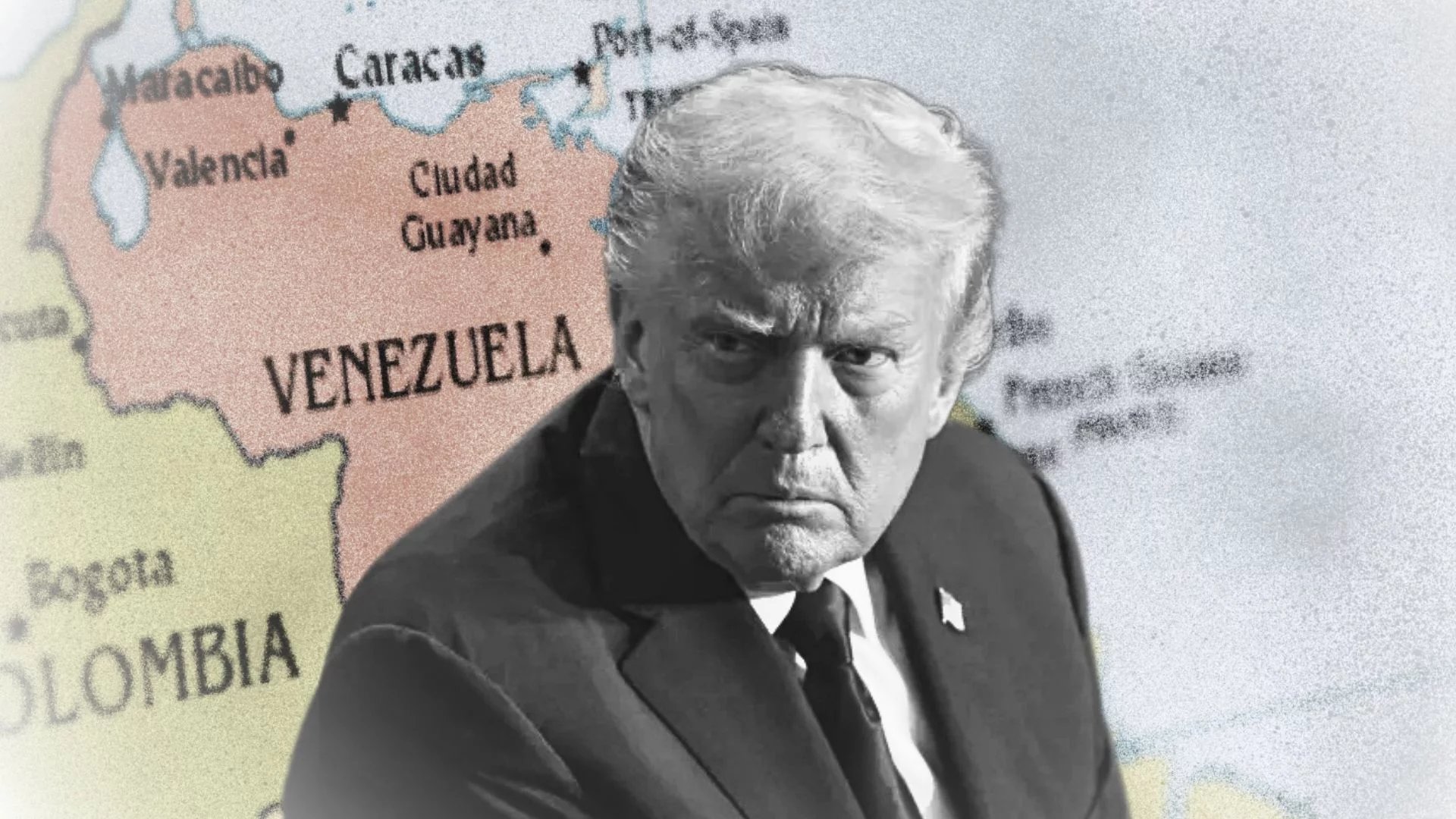American customs will hit Europe? Transport on the front line again
Donald Trump, who began his second word with a series of sharp economical activities, reintroduces tension on the US–EU lines. This time it is simply a proposal to impose as much as 50% of the customs work on goods imported from the European Union. Although the decision was temporarily suspended – until 9 July – the script of its implementation spends sleep with the eyes of many European entrepreneurs.
If these duties enter into force, this can lead to serious disruptions in the European supply chains, and the effects will be felt not only by industry, but besides by transport and logistics, headed by Polish transport companies.
Freight forwarders and carriers from Poland may find themselves in a very hard situation – especially those who operate global tracking or container shipping from transhipment ports. Many of these loads are goods exported outside the EU – frequently to the US, where the threat of a 50% work means 1 thing: volume reduction, thus little orders.
Liquid transport (liquid) can besides be seriously affected – chemical and food products carried by tankers belong to a group of goods exported on intercontinental routes. Any breakdown in trade will hit these very peculiar transports, which are the backbone of many transport companies.
U.S. and EU in Chess – playing for billions of dollars and hundreds of thousands of loads
The European Union remains the largest trading partner of the United States - only in 2024 the scale of EU imports to the US reached a staggering $618 billion. Introduction duties of 50% so it can have a painful impact not only on the European economy, but besides on America itself.
For the Union, these possible losses are estimated at over $100 billion, or about 0.5% of full EU GDP. This will hit the economies of Germany and Ireland – and with them in logistics hubswhich support a large volume of transatlantic transport. This will not be cost-free for the US – experts forecast inflation growth by 0,4 percent points and slowing down economical growth.
The decision was temporarily postponed until 9 July – but if by then the EU does not propose to increase imports from the United States (there is talk of another $100 billion), the duties will enter into force. Interestingly, the real increase in fees will not be 50%, but on average around 30% – due to possible customs exemptions. But even specified a rise means three times the existing customs duties (of the current 10%).
What about Poland?
Although politically close to the US, trade is not that intense. At first glance only 3.5% of Polish exports it goes straight across the ocean. But it's only part of the fact – Having respect to Poland's participation in the full European supply chainIt turns out that our real share of exports to the US is around 6%. That's what the United States does. second most crucial marketplace for Polish goods – right after Germany.
For the transport industry, especially for container routes, liquid products, chemicals, alcohol or food, this may mean export inhibition and simplification of exchange rates. This peculiarly applies to drivers who ride alleged trucking in port and long distance systems.
– When it comes to sectors of the economy, the most crucial failure of production, motorization, pharmaceutical manufacture and transport, which should be reduced in order. With the simplification of exports to the US, the request for transport of both components for the production of goods and their own to the mark transhipment hubs will fall. car transport is at the heart of our consideration, but maritime transport plays a immense function in the context of exports to the US, which are facing even greater losses. – says Jarosław Roslicki, Corporate Sales manager in Transcash.eu.
TSL on customs mark – little cargo, more uncertainty
The TSL manufacture (Transport–Spedition–Logistics) responds very rapidly to any disturbance in global trade – and it is no wonder, due to the fact that transport is its bloodstream. Proposed by the USA significant increase of customs duties on goods from the European Union may affect the number of orders and routes conducted by Polish carriers in a short time.
Less request for European products means less loadswhich must be transported – both straight exported to the ocean and those which go to German, Belgian or Dutch ports as links to global supply chains.
Drivers carrying out container transport or liquid routes (food liquids, chemicals, fuels) they can feel the effects first – less orders means less trips and possibly lower rates. This besides applies to companies working in alleged companies. port truckingwhere the rotation of containers and the fluidity of loading are important.
For logistics companies, this besides means greater hazard of downtime and the request to rebuild connection grids – and for freight forwarders price force and more hard planning.
– The natural consequence for the manufacture will besides be distortions in the supply processes which will be reorganised due to the request to search fresh outlets and change routes. This is simply a immense challenge, especially for freight forwarders who will be forced to adjust the already existing timetables to fresh realities, taking care not only of the correct course of transport but besides of their profitability – says Jarosław Roslicki of Transcash.eu.
Uncertainty in the TSL manufacture – companies look at duties with expanding concern
The US-planned increase in tariffs can be a major blow to the financial condition of transport and logistics companies. At the moment, it is hard to estimation the scale of possible losses, but 1 thing is known: TSL sector reacts nervously.
As shown in the survey data Polish economical Instituteau more than 40% of Polish companies fear the negative impact of customs changes on their business. Importantly, the biggest level of concern is in the transport sector – he is the first to feel the simplification in the number of orders and the decrease in exports.
Freight forwarders, hauliers and professional drivers – especially those operating in Tracking and transport of liquid products – they rightly ask themselves whether the number of courses will shortly decrease and with it the profitability of the full operation.
– It is crucial to specify the scale of engagement in handling orders exported to the US and to rise the issue of tariffs with market-related counterparties. In the current situation, further cooperation may require renegotiation of the agreement, which will safeguard our interests in the event of a extremist change in customs policy. Breaking cooperation at this phase would be a spill-out of the baby with a bath, but it is worth examining and analysing how it can affect further business relations – advises Jarosław Roslicki from Transcash.eu.
Diversification and technology – a way for uncertain times
For companies in the TSL manufacture besides strong dependence on routes and orders linked to the US marketplace can prove costly. Therefore, more and more carriers and freight forwarders Looking for stableness on the Union marketwhere logistics operates within a more predictable framework. Europe remains the safest and most flexible direction for local operators.
So it's worth it. route diversification and increase the volume of intra-continental transport. Even in liquid transports (liquids), specified as food, chemistry or fuel, shifts from intercontinental to regional routes can be observed – especially if any loads are subject to retaliatory duties.
The second crucial component is operational efficiency. Solutions specified as advanced TMS systems, telematics to aid reduce combustion and empty runs, or digital paper rounds, reduce costs and better usage of existing rolling stock – what in times of uncertainty can decide about survival.
Financial liquidity as a foundation for stability
When the manufacture enters turbulence, key to securing liquidity. It is not only a safety buffer, but besides a real tool to keep business continuity in case orders fall.
Financial marketplace expert Jarosław Roslicki stresses:
– In this situation, factoring services come with help, which supply a steady supply of funds to the account. For example, eSkonto for freight forwarding – a solution allowing to pay for cooperation with carriers without having to scope for its own financial reserve.
Such support may prove invaluable – especially for smaller companies serving Tracking, exports of liquids or transports from/to ports.
Retaliation duties – another unknown
But this is not the end of uncertainty. It is worth following closely the developments on both sides of the Atlantic – due to the fact that duty game does not run unilaterally. The European Union has already responded with a package retaliation duties of 25% for selected goods from the USA. Although the current list is limited (including soya, poultry, yachts), can gradually expand, which will besides affect the transport volume in the TSL sector.
For transport companies this means 1 thing – need to act in advance, flexibility and tracking of current information from the global market.












